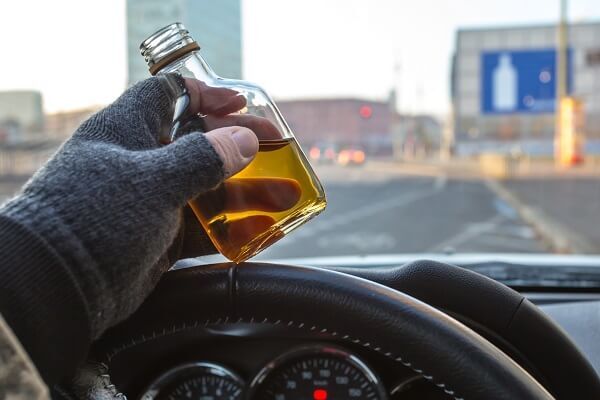
Experienced Car Accident Lawyers Serving Washington State Residents
Injury cases are difficult enough, but when one driver was intoxicated at the time of the accident, the situation becomes even more complicated.
Today, we focus on the issue of drunk driving and how that might affect a personal injury case. There are two instances where drunk driving could affect the claim:
- first, when the victim was also intoxicated, and
- second, when the at-fault driver was intoxicated.
When a Drunk Driver Causes the Automobile Accident in Mt. Vernon
If you are the victim of an accident, and the at-fault driver of that crash was intoxicated, you may be entitled to compensation (including punitive damages). Drunk driving accident cases are very complicated; therefore, you should consult a personal injury attorney immediately.
Can You Sue a Drunk Driver for Causing an Automobile Accident?
Yes, you can. You must file a civil lawsuit against the driver for the accident, and most likely the state will file a criminal case against that driver for their actions. In the criminal case, you do not receive compensation. Instead, you must seek compensation through a civil lawsuit.
How Does Drunk Driving Affect a Claim?
A person can experience various levels of intoxication. Some may be barely under the legal limit, while others could be well over the 0.08 percent requirement. Also, if the at-fault driver is under the influence of drugs and alcohol, then it may further complicate the outcome of your case.
Most importantly, it is not the act of being intoxicated that is the actual cause of the accident. Instead, the driver’s negligent actions due to their intoxication are what caused your crash. While this sounds the same, there is a subtle difference that plays a gigantic role in your claim.
Using the Driver’s Intoxication in Your Negotiations
Your injury attorney will use the fact that the at-fault driver was intoxicated to empower negotiations further and swing the odds in your favor. If the driver received a citation or was found guilty of a DUI, this will only make it easier to prove your case.
What Are Punitive Damages and When Would You Receive Them?
Punitive damages are a particular category of injury damages. Not all injury cases see punitive damages. Instead, they are allowed when the at-fault party was intentional or so reckless that they had no regard for the consequences of their actions or did not care. The courts use punitive damages to punish the defendant and emphasize to the public that similar actions are not tolerated – and hopefully, deter others from doing similar acts.
Punitive damages will make an example out of a drunk driver; therefore, the damage amount awarded is what the court feels suits the crime – not your financial losses.
Clear and Convincing Evidence Is Needed to Warrant Punitive Damages
To receive punitive damages, the judge typically requires that the jury find it necessary to award because there is clear and convincing evidence that the at-fault driver had intentional misconduct or gross negligence at the time of the accident.
“Clear and convincing” evidence means that the greater weight of the evidence must show that the defendant was guilty and negligent. Intentional misconduct says that the defendant knew the act they were committing was wrong, and that there was a high chance of injury or death.
Most motorists can agree that drunk driving is a dangerous act, and it is against the law. Therefore, someone who is intoxicated and chooses to drive has already decided to engage in criminal behavior, and something they know is dangerous.
Realize Car Insurance May Not Pay for Punitive Damages
An automobile insurance company is not required to pay punitive damages, but they must do what they can to protect their insured from paying these damages. Insurance companies owe a duty to their clients and have an obligation to pay up to the policy limits to the victim in exchange for a full release of the insured.
Therefore, insurance companies will pay up until the maximum policy limit allows in most cases. Sometimes, insurance companies will refuse to offer the policy limits, which means your attorney will need to take the case to trial and receive compensation through a court-awarded judgment.
When You Were Also Drunk at the Time of the Accident
What about if you did not cause the accident, but you were also intoxicated at the time of the crash. In these cases, you might find it hard to collect compensation. Your insurance policy may not cover any damage that occurs to your vehicle or injuries you sustain. Furthermore, the other party’s insurance company will argue that you caused your injuries or the accident itself because you were also intoxicated.
Contributory Negligence
In most cases where the victim was also too intoxicated to drive, the defense will argue contributory negligence and try to state that the victim was more at-fault for the accident and injuries than the defendant.
Even if they fail with having the case dismissed, you may lose a portion of your compensation to the argument that you were partially at fault. In this case, your payment would be reduced by the amount of responsibility you contributed. For example, the court finds you 20 percent at-fault.
In this case, your settlement amount was $100,000, but with the 20 percent deduction, you now only receive $80,000 from the defendant.
Injured in a Drunk Driving Accident? Contact an Attorney in Mt. Vernon Right Away
If you or a loved one was injured in an accident with a drunk driver, you have the right to seek compensation from that driver. To explore those options, schedule a consultation with an attorney from Brett McCandlis Brown & Conner, PLLC. Our attorneys are here to protect you from insurance companies, negotiate for maximum compensation, and we are willing to take your case to court and fight for what you deserve.
Schedule your free no-obligation consultation now at 206-922-4197 or request more information online.


